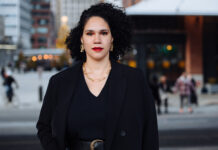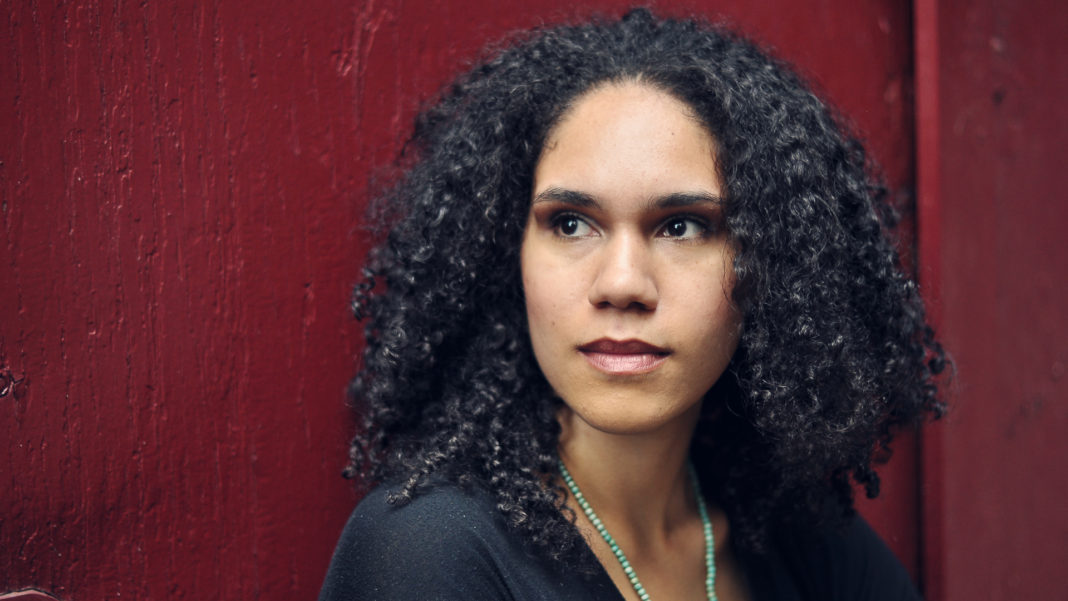It’s an exciting time for composer Jessie Montgomery. Her work as a composer is reaching new and expanding audiences every day. Earlier this week she was named Composer-In-Residence at the Chicago Symphony Orchestra.
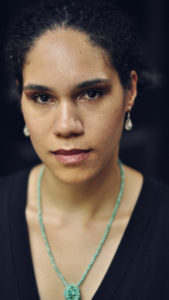
This weekend the first of two episodes of Los Angeles Chamber Orchestra’s Close Quarters series she curated makes its debut. Sonic Shift, featuring the work of composers Marcos Balter, Anna Meredith and Alyssa Weinberg premieres on Friday, April 23rd at 6:30 PM PDT.
The second episode, Beyond the Horizon, featuring the work of composers Alvin Singleton, Mazz Swift and one of Montgomery’s own compositions debuts on May 7th.
Last month I spoke by phone with Montgomery about her collaborations with LACO on this project, bringing in mezzo-soprano Isabel Leonard to direct Beyond the Horizon and the future for Black composers in classical music. What follows are excerpts from that conversation that have been edited for length and clarity.
The programming you’ve put together is not the kind of material typically associated with LACO. What was their response to the repertoire you selected?
I’m happy to say there was really a lot of support. I basically used the guidelines LACO uses for their Sessions programming which I ended up transitioning from into this Close Quarters format. Sessions is part of their programming where they stretch beyond their usual repertoire and often includes a lot of new music. I already knew that I was going to be doing a program that was all living composers – so that was already understood. Then from there they gave me free rein. What is your aesthetic? What is your vision? What do you want to hear more of? I thought that was a great directive.
What did you want to accomplish with each episode?
My first instinct was I wanted to choose music I felt attracted to – all identity politics aside. There are two separate programs. Sonic Shift is playing with the balance and transition between acoustic and electronic or electro-acoustic sound worlds. So there’s a progression that happens through from beginning to end with that program. I really wanted to include a nice assortment of chamber wind players so that there was a balance of instrumentation.
The second program was the one I wanted to make more geared around certain aspects of my own music I’m working with and continuing to explore – which is the realm of improvisation. The other two artists are also African American artists. The cross-exploration of improvisation and jazz exists within that second program. And also total avant-garde experimental music through Alvin Singleton. I thought that was an interesting way to frame the broad range of styles and approaches of Black classical musicians.
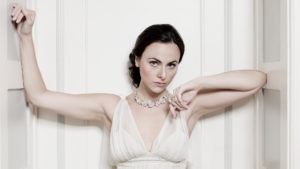
Isabel Leonard was a surprising choice to direct Beyond the Horizon, particularly for a program about improvisation. The opera world is not exactly where you find improvisation welcomed.
I’m really excited to see what she’s going to do with it. The spirit of spontaneity may be something that she jumps on. We talked a little bit about how she might bring in that quality of surprise and spontaneity.
I love the idea of a performing artist designing and directing the visuals. I think that’s a really awesome and interesting angle for LACO to take. I’m really excited to work with her. Isabel, Nadia [music producer Nadia Sirota] and myself were at Juilliard together. It’s a reunion collaboration in a way.
What gives you faith in this moment in time that Black composers, both dead and alive, will continue to be embraced by major institutions in the long run?
I can say that I’m seeing it happen just in the invitations and the places I’m involved in. I’m seeing more Black artists brought into the decision-making roles whether they are on artistic planning committees or curator roles or even within higher CEO and director positions. There are definitely organizations that are bringing in Black artists and not necessarily letting them do what they want, which is all too common and other organizations that are completely resisting it all together.
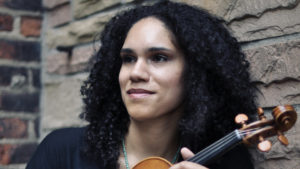
It was deliberate that I did a program of all-Black artists, but it was guided mainly by the music and then the fact I wanted to make a contribution in terms of the direction things are moving. There’s as much range amongst Black artists as there is any group of people. I think it’s really interesting in this context to show that range as well. So I would say I have to stay optimistic that these changes and attitudes and the interest we’re seeing is genuine in most cases and that will prevail to keep our ears open and our eyes open.
In a 1936 Chicago Defender* article, composer Florence Price** was quoted as saying, “Keep ideals in front of you; they will lead to victory.” Does that resonate with you and if so, does it inspire you?
Absolutely. I think Florence Price is an incredible example of somebody who really fought that fight. She was told she couldn’t achieve what she achieved. She was rigorous in her writing and in the amount of music she wrote. She was so determined to work within the classical music structure: orchestral pieces, concertos, organ pieces, piano pieces, string quartets – really traditional models. It speaks to her determination and her sense of I’m going to do this because I know it’s possible no matter what happens.
I think we all have to have that attitude as artists – that we can create what we want when we want to create it. Just being a human being and having the right and freedom to create what you want is a natural human right and ability we all possess and develop in different ways. That should be the case for everybody.
*Chicago Defender is an African-American newspaper founded in 1905 by Robert S. Abbott. It ceased print publication in 2019 and is an online only publication today.
**Florence Price was the first Black American woman to be recognized as a symphonic composer. Her Symphony in E Minor was given its debut by the Chicago Symphony Orchestra in 1933, marking the first time a work by a Black female composer was performed in the United States by a major classical orchestra.
All photos of Jessie Montgomery by Jiyang Chen (Courtesy MKI Artists)


